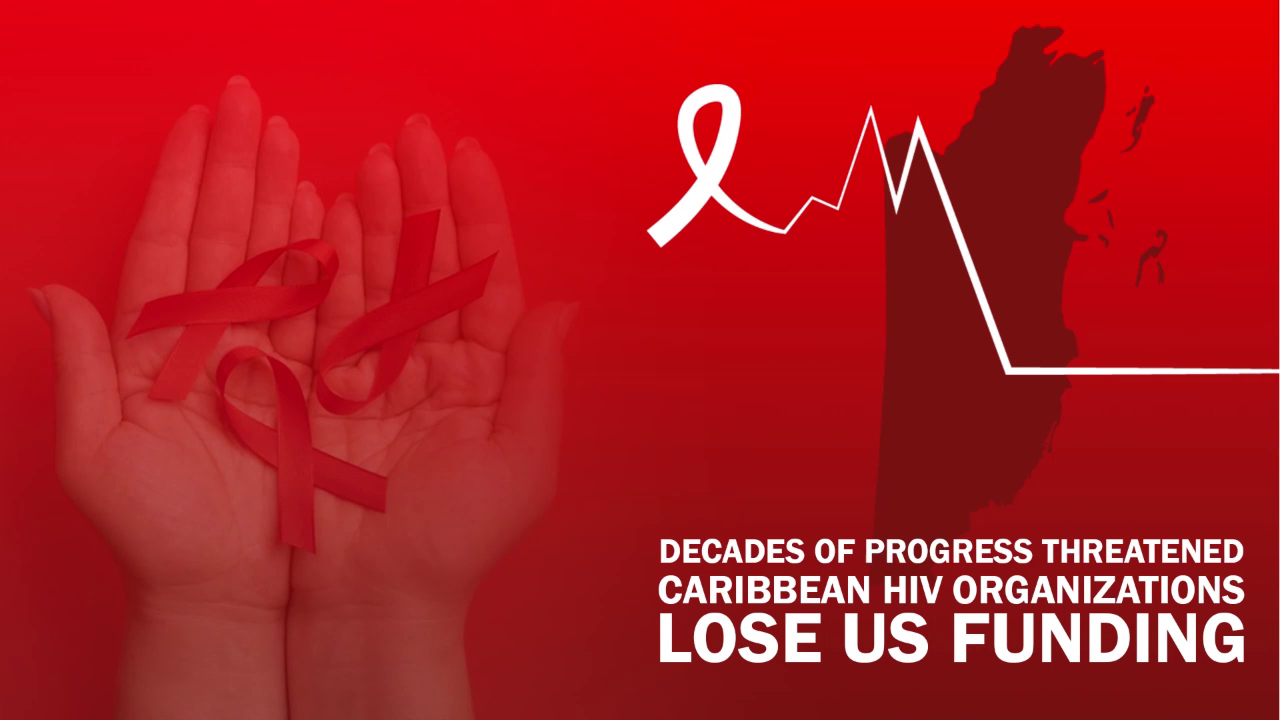The United Nations is calling on the Caribbean to boost its efforts in the fight to end AIDS. Earlier this month, the Joint United Nations Program on HIV and AIDS released a publication that revealed that since the United States pulled funding from the Global Fund, eighty percent of HIV treatment facilities are struggling to keep their doors open. Largely affected are civil society organizations, which conduct outreach and prevention programs. The UN is urging governments across the region to prioritize supporting these organizations as they play a pivotal role in HIV care. News Five ‘s Britney Gordon reports.
For decades, the Caribbean has been making real progress in the fight against HIV—fewer deaths, fewer new infections, and more people getting the care they need. But that progress is now under serious threat. Right now, over three hundred and forty thousand people in the region are living with HIV. Every single day, forty-one more are newly infected, and fourteen lose their lives. And just as we need to push harder, a major source of support has been pulled away. The United States has withdrawn its funding from the Global Fund, a move that’s hitting civil society organizations the hardest. These are the groups on the front lines, doing the outreach, the education, the prevention work. And now, many of them are struggling to stay afloat.
Dr. Richard Amenyah, Multi-country Director, UNAIDS
“ It’s not just a data point. These are real people who are impacted. These are real communities who are impacted. These are geographic areas of people who are being left behind, who are impacted. For UNAIDS and PANCAP, we decided to have a better understanding of this situation and to also see how has this funding can directly impacted the beneficiaries as well. And we see there’s a lot of mental health issues. If I know HIV is not curable. And I need to be on my medications every day. And I require social support for certain services that may not be directly be delivered by the health system. Then I need to depend on civil society groups to be able to do some of these things.”
Civil society organizations play a quiet but crucial role in HIV treatment. Every day, diagnosed patients battle against stigma, shame and other mental health struggles. Kimberly Simpson shares how the community often leans on each other through these organizations for support.
Voice of: Kimberly Simpson, HIV Positive
“Yes, we have a group where we support each other and stuff like that. And there are times we have our meetings and we would discuss certain things but like I said, when it come to that part, no longer having that to help us or support us, I know it will be difficult to each one of us. Some of us might be afraid to admit it or say that but it will be difficult because not everyone is brave like me.”
Dolores Balderaos-Garcia, Chair, National Aids Commission
“The Ministry of Health now is fully on board with the National AIDS Commission in utilizing what we call differentiated service models. And why do I call it differentiated service models? Because not everybody might want to go to the clinic, especially if you’re a gay man or if you are selling sex. The stigma and discrimination is still such that. There are some persons in the, what we call the key vulnerable populations who may not want to be out there going to a clinic. And even if it is not absolutely real, the perception of the stigma and discrimination is still significant, even though we’ve been fighting this thing for over thirty-five years.”
Dr. Richard Amenyah
“We know civil society organizations, their support for the HIV response. It’s largely within the area of HIV prevention. Working in trying to strengthen community partnership, engagement, advocacy and addressing issues around human right stigma and discrimination and all those wraparound elements which impact structurally and socially On the HIV response. HIV is not just a health issue where you just take medications, but it’s also about community support, peer support, and community solidarity. And so we decided to find out how has this pause in funding or cut in funding impacted the HIV response.”
Dolores Balderaos-Garcia
“Guyana apparently is doing very well in their HIV fight and also countries like Trinidad and Barbados. But there are challenges in the smaller, maybe Eastern Caribbean countries. I don’t wanna speak what I don’t know because I don’t know each one individually. But looking for funding sources, we will have to look within. In my view. That’s my humble view. Now, what we are asking in terms of our ramped up and, we have to scale up our HIV response now in order to achieve the goal of 2030, that by 2030 HIV would not be a significant health threat to our people.”
The time to act is now, before the hard-earned progress achieved in the region is undine. The fight must be holistic and inclusive to ensure that HIV patients are supported in all aspects of their journey. Britney Gordon for News Five.
